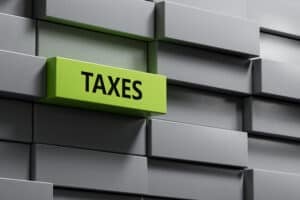Could new vaping tax hurt job creation in South Africa's fledgling e-cigarette industry?

Many of us have seen the massive clouds emitted through car windows at traffic lights or gotten a face full of the sweet and sometimes nauseating artificial stench of a vape cloud, which vapers have no problem blowing your way because, well, “it’s not even smoke after all”.
And with flavours such as honey-nut granola yogurt, fresh-picked berries, root beer and strawberry cotton candy, it’s no wonder that the popularity of smoking e-cigarettes (vaping) has grown in leaps and bounds since hitting South African shores well over a decade ago.
First touted as the lesser of two evils, when it comes to smoking, and a means to an end for nicotine addicts desperate to kick their habit, the harmful effects of vaping is increasingly bearing the brunt of researchers.
Although there was previously no tax placed on e-cigarettes and liquids, this changed in today’s 2020/2021 Budget Speech and has yielded a somewhat steamy reaction from anti-smoking lobbyists and vape industry players alike.
South African Finance Minister Tito Mboweni announced that government plans to tax heated tobacco products at a rate of 75% of cigarette excise rate with immediate effect – meaning that vapers will now have to dig deeper to maintain an already costly habit.
Andrew Golding, the managing director of Hit The Ground Running, a hubbly and vape wholesale company, says given the cost of e-liquids, the ruling the new tax law could create an alternative market.
“The same as what happened with tobacco products, this could force shop owners and suppliers to produce their own liquids and sell them from home, so as to avoid the tax, which is certainly going to create a decline in customers at vape shops,” Golding told The Citizen.
E-liquids usually comes in four bottle sizes: 10 mL, 30 mL, 60 mL and 120 mL and, depending on the brand or flavour, sell anywhere from R49 to R82 for a 10 mL, and up to R299 for a 60mL.
Effectively this means the imposed 75% tax will see vapers shelling out much more than the usual price per 10, 30, 60 and 120mL of e-liquid.
“I have been involved in the vaping industry for more than four years and have seen the positive effect it has had on people who used to be regular cigarette smokers.
“I feel some people might turn back to tobacco products if taxes are too high, as people do not have the spare cash to pay for the products as the economy at the moment is really tough,” said Golding.
He urges the government to engage with stakeholders in the vape industry and figure out a win-win for both parties.
“The vape industry is made up mostly of small to medium business that helps employ the youth. For example, my last business employed 12 people under the age of 23 who could not find jobs.”
Conversely, the National Council Against Smoking (NCAS) welcomes the new tax, adding that this is in line with the World Health Organisation (WHO) recommendations that e-cigarettes should be taxed like other harmful products.
“Taxes must be imposed on all e-liquids regardless of the presence of nicotine, because research shows that non-nicotine e-liquids are also harmful to health,” Dr Sharon Nyatsanza, the NCAS Project & Communications Manager, told The Citizen.
In addition to the new tax, she said the NCSA suggests that the South African government also follow the World Bank’s recommendation to impose a specific tax on all e-liquids per millilitre and to impose an ad valorem tax (a tax based on the value or price) on the e-cigarette device itself.
“This will make them less affordable and help reduce their use and associated harm,” said Nyatsanza.
Vaping, or smoking electronic cigarettes, first became widely popular in China in 2003, where 60% of men are smokers.
In theory, since vaping does not burn tobacco, it should be safer than conventional cigarette smoking.
However, recent research from the American Heart Association (AHA) shows that electronic cigarette use may harm cardiovascular health – adding to the growing list of concerns about their safety.
Sharing these sentiments, Dr Nyatsanza notes how just last year 2019 more some 60 people died from e-cigarette related use in the USA.
“The reality is they [e-cigarettes] cause harm to health, and imposing tax reduces their use and averts the birth of an e-cigarette epidemic in South Africa.”
The new tax on vaping kicks in from 1 March.
For more news your way, download The Citizen’s app for iOS and Android.






